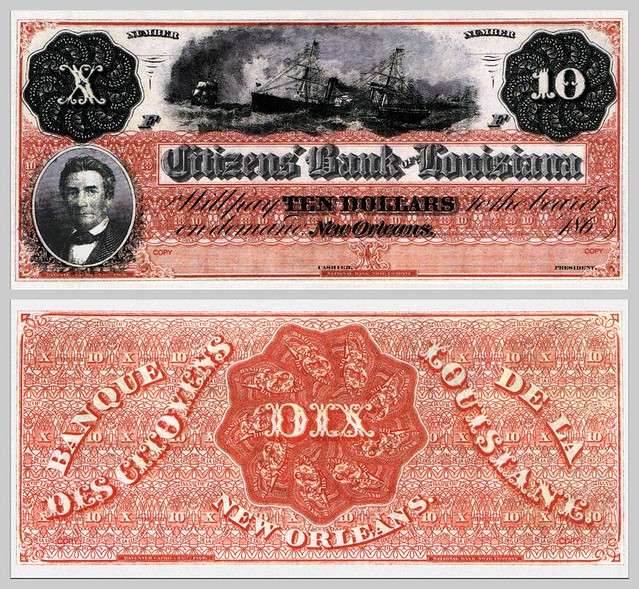Interesante.
Copio de Wikipedia otras teorías sobre el origen de la acepción "Dixie"
Origin of the terms "Dixie" and "Dixieland"[edit]
Several theories exist regarding the origin of the term "Dixie". According to Robert LeRoy Ripley (founder and originator of "Ripley's Believe It or Not"), Dixie has nothing to do with the south. "Dixieland" was originally located on a farm in Long Island, New York. This farm was owned by a man named John Dixie. He befriended so many slaves before the Civil War, his place, "Dixie's Land," became a sort of a paradise to them.
James H. Street, in his book, Look Away! A Dixie Notebook, as condensed in the August 1937 Readers Digest, page 45, says that "Johaan Dixie" a Haarlem (Manhattan Island) farmer and slave owner, upon deciding that his slaves were not profitable because they were necessarily idle during the New York winter, sent them to Charleston, where they were sold. Subsequently, the slaves were busy constantly, and, longing for the less strenuous life on the Haarlem farm, would chant, "I sho' wish we was back on Dixie's lan'. Lawdy Lawd. If we wuz all back on Dixie's lan'." Dan Emmett had toured the south, and had heard the Dixie ditty. Dixie did not catch on when Emmett introduced it in New Orleans in the late 50s, but a few years later at the secession convention in Montgomery Alabama the bandmaster was inspired to adapt Dixie, stepped up the tempo, and it became an instant success, and the anthem of the South.
The most popular theory maintains that the term's origins lie in the Mason–Dixon line.[44] Another theory posits that it derives from the term, "Dix Notes," which referred to ten dollar bills in Louisiana.
Resultados 1 al 10 de 5039
Ver modo hilado
-
17/02/2017, 14:41 #11Dress like the man you want to become.





 Citar
Citar